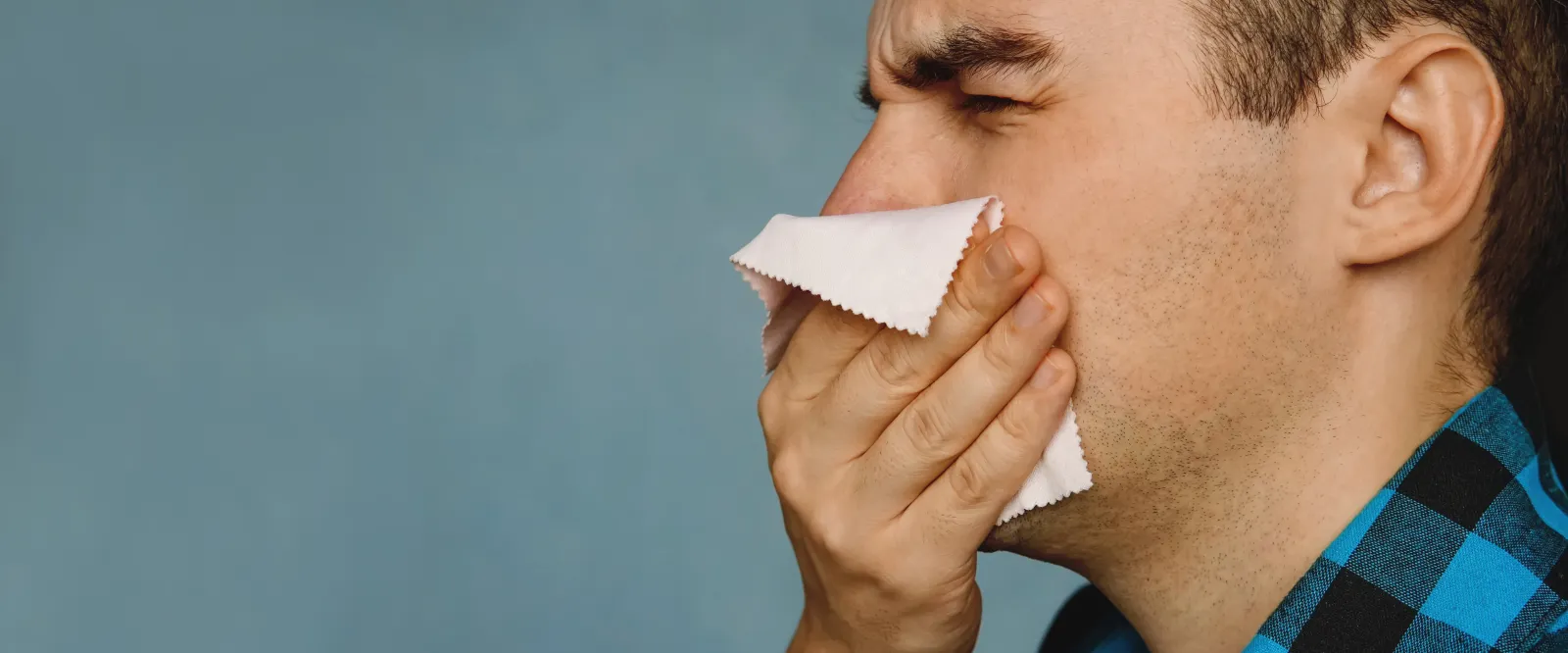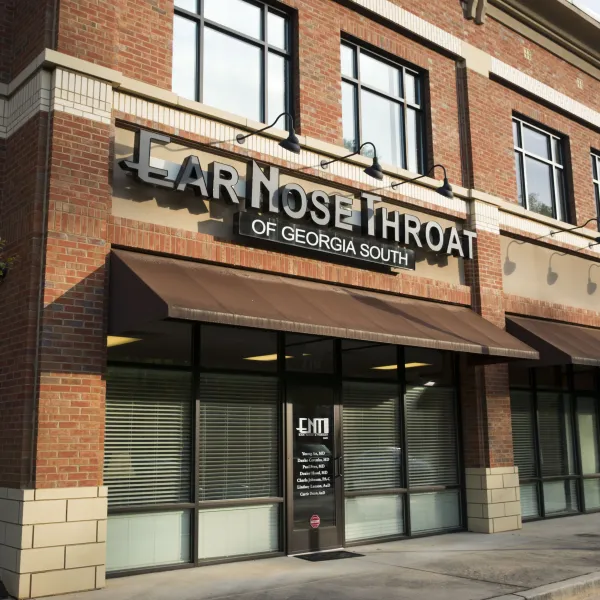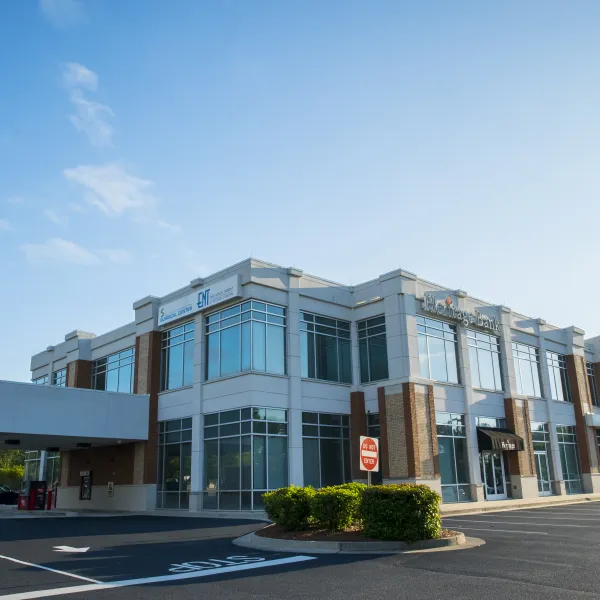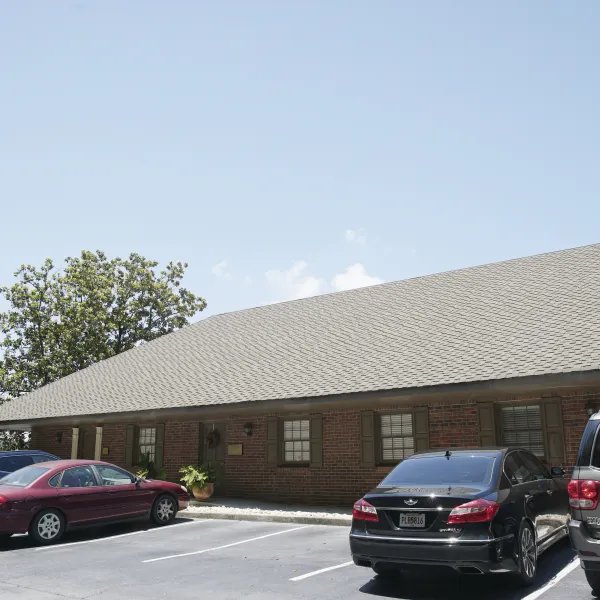
Turbinate Reduction

What is
Turbinate Reduction?
ENT of Georgia South ear, nose, and throat specialists perform radiofrequency (RF) turbinate reduction in the office to help our patients breathe better through their noses, reducing chronic stuffy noses, sinus infections, and snoring symptoms.
Nasal turbinates (or nasal concha) are bony and soft-tissue structures inside the nose. Their purpose is to trap dirt, dust, and particles like pollen so these irritants do not enter your lungs. They also add moisture and heat the air you breathe in, which helps your lungs operate more effectively.
Allergies and other conditions can cause irritation, inflammation, and enlargement of the turbinates resulting in a blocked nasal airway (stuffy nose). A blocked nasal airway is also a common contributor to snoring.
How are
Enlarged Turbinates Treated?
Most people find relief from a chronic stuffy nose with medications like antihistamines, decongestants or topical nasal steroids. When medications are ineffective at controlling symptoms or nasal blockage is significant, minimally invasive surgical treatments may be necessary to reduce the size of the turbinates.
What are Symptoms of Enlarged Turbinates?
-
Turbinate hypertrophy
-
Chronic stuffy nose
-
Sneezing
-
Snoring
-
Mouth breathing
-
Headaches
-
Decreased energy and fatigue
-
Occasional to frequent sinus infections
What is
Radiofrequency Turbinate Reduction?
The procedure is a quick and virtually painless in-office procedure with a fast recovery and a low incidence of side effects. Clinical studies have shown the procedure results in a reduction of nasal blockage by 50% within a week.
How Does
Radiofrequency Turbinate Reduction Work?
During an RF turbinate reduction, local anesthetic is applied and a probe is inserted into the nose to shrink some of the tissue within the turbinate, thus reducing its size. RF is a lower-temperature technique for reduction of the turbinates. This is important because it means that the mucous membranes are not altered, preserving normal nasal function. Preservation of the mucus membranes is important as they secrete mucus that traps small particles such as bacteria and dust. This helps to prevent foreign particles from entering the lungs and keeps the inside of the nose moisturized.
What are the Advantages of
Radiofrequency Turbinate Reduction?
- Quick procedure that only takes about 90 seconds per side to complete the passes of the RF probe
- Done using only local anesthetic
- High levels of patient satisfaction
- Effective relief that increases over time
- Turbinate reduction procedures are usually covered by insurance
What results can I expect from radiofrequency turbinate reduction?
Results from clinical studies confirm that use of radiofrequency to reduce turbinates improves breathing in patients almost immediately and snoring usually improves within three to four weeks of the procedure.
Clinical Studies of
Radio Frequency Turbinate Reduction have Shown:
- A sustained reduction in degree of nasal obstruction at three, six and 12 months.
- At three months, 75 percent of patients reported improvement in nasal breathing, increasing to 85 percent of patients at six months.
Take the first step towards a better night's sleep and a healthier lifestyle for you and your bed partner. Make an appointment at ENT of Georgia South for an evaluation today. If enlarged or inflamed turbinates are found during your evaluation, our physicians will correct the problem to improve your nasal breathing as part of your snoring treatment and improved overall health.
Our Convenient
Office Locations



Buckhead
1218 W Paces Ferry Rd NW
UNIT 208
Atlanta, GA 30327
Monday - Thursday 8am - 4:30pm
Friday - 8am-2:30pm
